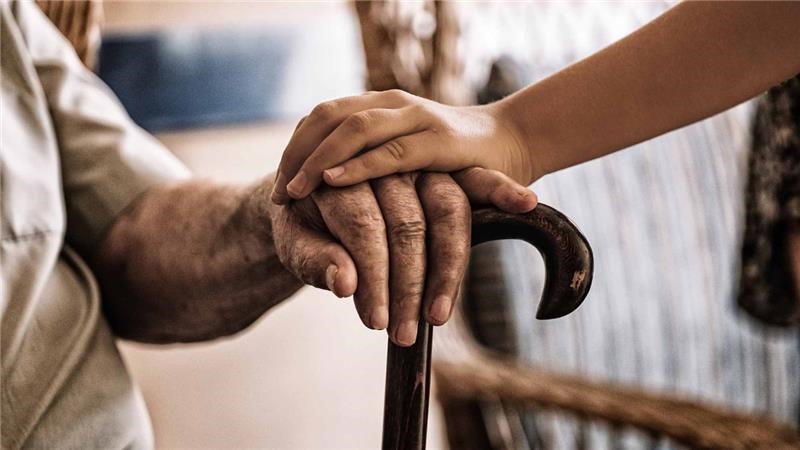HouseCalls: Better access, improved health outcomes and lower costs for patients and the government
Millions of older adults rely on UnitedHealthcare’s free HouseCalls service, which brings important preventive care visits into their home. Our nurse practitioners spend up to an hour with patients, checking their health and helping them make connections to other social services so they can live a better, more independent life.
In 2024 alone, HouseCalls closed over 3 million gaps in care.
For UnitedHealthcare members, most individuals receive an annual HouseCalls visit, a yearly in-home health and wellness service that helps people stay on top of their health between regular doctor visits. These visits occur at no cost to members, ensuring they have access to preventive care that might otherwise be difficult, or even impossible, for them to access.
Moreover, social drivers of health — things like food, housing and transportation — can have a major impact on one’s health, and HouseCalls can also help connect older adults and other beneficiaries to services and resources for unmet needs.
In addition, HouseCalls prioritizes quality and assurance with robust procedures to prevent inaccurate diagnoses. Clinicians are educated and trained to use independent clinical judgment. These quality and assurance processes, including bi-annual and targeted reviews, ensure documentation accuracy. Certified medical record coding professionals accurately record diagnosis codes. An additional process validates diagnoses submitted to Centers for Medicare & Medicaid Services (CMS), removing unsupported diagnoses.
Hear heartfelt stories from our nurse practitioners:
75%
99%
among members
575K
288K
were detected by HouseCalls clinicians in 2024
2%
5.2%
Proactive care for older adults
HouseCalls is an important part of the overall care older adults receive and helps drive proactive engagement with the health system, rather than reactive — and often more expensive — acute care.
HouseCalls follows CMS' best practices for in-home visits. Licensed and trained advanced practice clinicians, including nurse practitioners and physician assistants, conduct thorough clinical visits at older adults' homes. These visits include reviewing health history, current conditions, medications; a comprehensive physical exam and necessary lab tests and screenings.
“I, every year, do my HouseCalls visit. They come and they give you a physical, basically, and go over all your medications and ask you a lot of questions. What are you doing to keep your diabetes in order? Sometimes I felt like it was more thorough than going into the doctor's office because they spent more time with you and ask more questions. I feel very confident that I'm gonna be staying healthy because I have so much of a support system with UnitedHealthcare.”
Mary | 2024
Benefits of HouseCalls
- Extended visits: HouseCalls visits are on average about twice as long as a traditional primary care office visit, affording the HouseCalls clinician ample time to take questions from the member and provide personalized guidance. The home environment also provides a unique opportunity for the clinician to gain valuable information that cannot be obtained in an office setting or a virtual visit. As just one example, HouseCalls clinicians conduct a visual review of the member’s home environment to identify and educate people on any safety risks in their homes.
- Complementary care: The program complements, and does not replace, the care people receive from their primary care providers (PCPs). UnitedHealthcare's clinicians and staff interact with the PCPs before, during and after the HouseCalls visit to help ensure continuity of care.
- Planful pre-visits: Interactions between HouseCalls clinicians and PCPs often start before the HouseCalls visit takes place, with communications about what to expect. There is also real-time outreach during the visit if an emergent need or significant finding is identified.
- Personalized support: The visit can also result in referrals to the PCP, including a personalized checklist of items for the patient to discuss with their PCP. HouseCalls also sends the patient’s PCP a post-visit report that documents findings from the in-home visit, including test and screening results, physical exam findings, diagnoses, referrals, and recommendations.
- Care beyond the home: During a HouseCalls in-home visit, clinicians also assess a patient’s nonmedical factors that could nevertheless impact health outcomes. These factors, which include food insecurity, transportation needs, medication affordability, and others, are known as Social Determinants of Health (SDOH). HouseCalls refers patients to social workers, behavioral health programs, pharmacists, longitudinal care programs, or community resources and programs to support SDOH issues.
HouseCalls in the community
From rural counties to busy cities: HouseCalls helps close gaps in care
A day in the life with HouseCalls
HouseCalls brings yearly check-in care to you
Quality care from home through HouseCalls
In-home care: Meeting patients where they are
The Impact of a HouseCalls practitioner
In the news
-
How a HouseCalls visit changed – and likely saved – one man’s life
“What you see in the mirror might not be what’s going on. It’s your life, you need to preserve it.” – Roy Gault, UHC Medicare Advantage Member
-
A Patient-First Approach to Care Starts at Home
"What distinguishes it from a typical office appointment is that it’s completed in a patient’s home and lasts significantly longer." – Dr. Wyatt Decker, chief physician value-based care and innovation, UnitedHealth Group
-
Why UnitedHealthcare Has Reimagined Routine Health Visits
"When we spend time in members' homes, we find the things that don't come up in the clinic but will absolutely affect their ability to stay healthy and manage a chronic condition." – Dr. Alexander Billioux, chief medical officer, UnitedHealthcare Government Programs
Forward-Looking Statement
Forward-Looking Statement
Forward-Looking Statement
DISCLAIMER
HouseCalls may not be available with all plans or in all areas.
Content is for general informational purposes only and not intended to be medical advice or a substitute for professional health care. See your physician for medical advice personalized to your situation. © 2022 United HealthCare Services. Inc. Plans are insured through UnitedHealthcare Insurance Company or one of its affiliated companies, a Medicare Advantage organization with a Medicare contract. Enrollment in the plan depends on the plan’s contract renewal with Medicare.
Y0066_211216_013036_M
